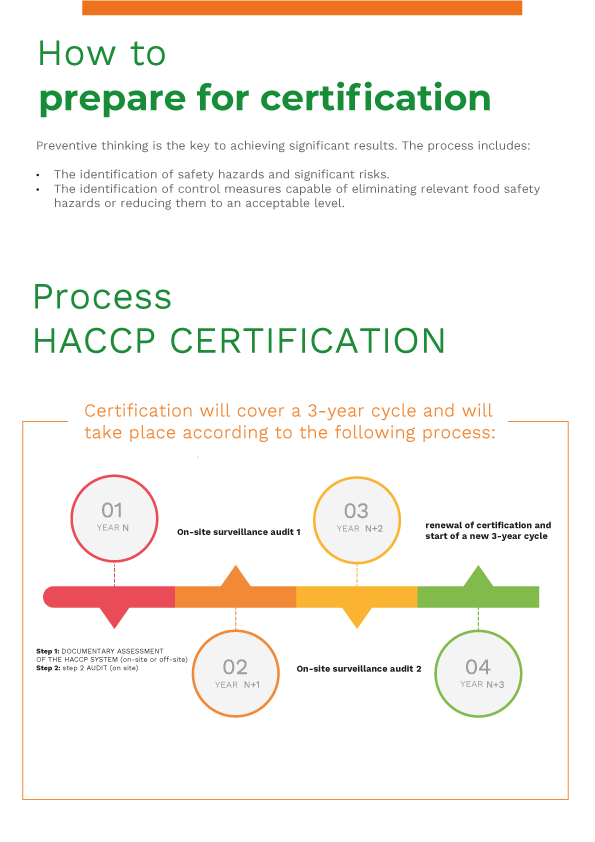
HACCP certification for small businesses

What is HACCP certification?
HACCP stands for Hazard Analysis Critical Control Point. It is a food safety management method. It is based on an essential principle: hazard analysis.
HACCP is the internationally recognised operational method that helps organisations in the food industry, agro-processors, canteens, bakers, confectioners and hotels to :
- ensure regulatory compliance
- identify and assess food-related risks: biological, such as salmonella or listeria, chemical, such as mineral oil residues or cleaning products, or physical, such as wood or glass residues;
- guarantee that the food on offer is fit for consumption.
Objectives
The aim of HACCP is to validate the implementation of the food safety system, and in particular to :
- Protect the consumer by guaranteeing the safety and quality of foodstuffs.
- Strengthen the credibility and competitiveness of the various players in the food chain through HACCP certification.
- Improving and maintaining product safety and critical control points.
- Be aware of the risks likely to affect the production chain.
- Provide proof of compliance
How will certification benefit my organisation?
The benefits of HACCP are many, but the most significant are tangible and demonstrable improvements in food safety performance and greater assurance of regulatory compliance.
The ultimate aim of the system is to ensure food safety, both by identifying food safety hazards and by managing them, rather than by ineffective, retroactive quality control. HACCP certification enables organisations to :
- Convey confidence to customers, demonstrating that food is produced using safe processes,
- Prove that organisations have taken all the necessary precautions to ensure the production of safe food and drink, if they operate in a country with a strong legislative framework,
- Enable consumers to demand that suppliers be assessed and certified, saving management time.
- Reduce the number of audits carried out by consumers, and therefore save management time and related costs,
- Reduce production waste and the number of product recalls.
- Improve relations with food safety authorities.
- Improve performance.
How to prepare for certification
Preventive thinking is the key to achieving significant results. The process includes :
- Hazard identification
- Identifying control measures capable of eliminating hazards or reducing them to an acceptable level.
What are the benefits?
Social benefits
- Protect consumers, who are the most vulnerable in the food chain, because they are at the end of the food chain.
- Avoiding or preventing public health problems linked to food poisoning and chemical and physical contaminants (TIAs).
- Guarantee that the food products marketed are safe and meet the hazard control requirements of the HACCP system.
At an economic level
- Strengthening the credibility of stakeholders,
- Facilitating access to new international markets,
- Increased customer base,
- A springboard to ISO 22000 certification and access to new national markets.
- The certification service will boost the competitiveness of players and make it easier to market their products.
Environment and society
A healthy and hygienic working environment gives customers confidence.



